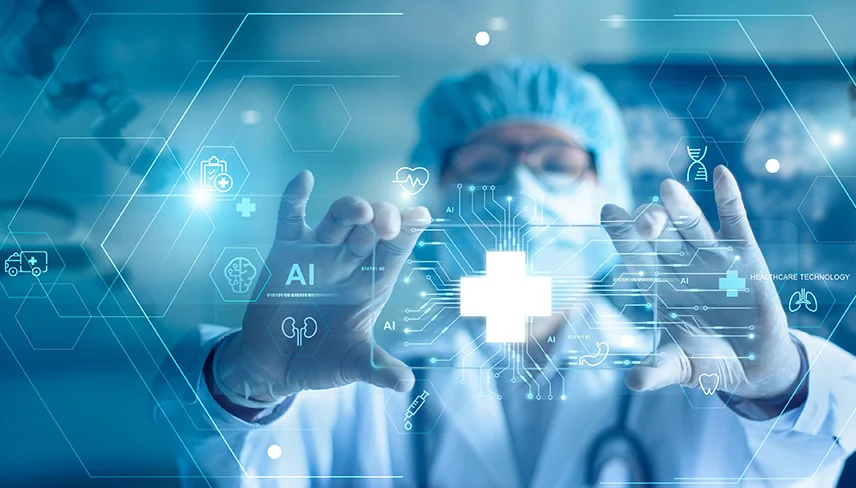The healthcare system in the United States is undergoing rapid transformation, and machine learning (ML) is at the forefront of this revolution. From predicting diseases before symptoms appear to personalizing treatment plans, machine learning has the potential to make healthcare more efficient, accurate, and accessible.
For patients, doctors, and policymakers alike, understanding the role of machine learning in U.S. healthcare is essential. This article explores how ML is reshaping the industry, the challenges it faces, and the future possibilities supported by both real-world applications and university-led scientific research.
Why Machine Learning Matters in Healthcare
Healthcare in the U.S. faces enormous challenges: rising costs, physician shortages, and unequal access to quality care. Machine learning offers solutions by analyzing vast amounts of data—from electronic health records (EHRs) to imaging scans—faster and more accurately than humans alone.
According to a Stanford University School of Medicine study, machine learning algorithms in radiology are already demonstrating accuracy on par with human specialists in detecting certain cancers. This scientific validation shows ML’s potential to complement, not replace, human expertise in healthcare.
Key Applications of Machine Learning in U.S. Healthcare
Machine learning is not just a futuristic concept; it is actively being applied in multiple areas of American healthcare. Below are the most impactful applications:
1. Disease Prediction and Early Diagnosis
Machine learning can analyze patterns in patient data to identify risks of chronic diseases such as diabetes, heart disease, and cancer before symptoms fully develop.
- Example: An ML model trained on EHRs can detect early signs of sepsis, a life-threatening condition, giving doctors more time to intervene.
- Benefit: Saves lives by enabling preventive care rather than reactive treatment.
2. Medical Imaging and Diagnostics
Radiology, pathology, and dermatology are being transformed by ML algorithms that detect anomalies in scans and images.
- Harvard University research revealed that deep learning systems can identify skin cancers with accuracy comparable to dermatologists.
- Benefit: Faster, more consistent readings that support physicians and reduce diagnostic errors.
3. Personalized Treatment Plans
Instead of a one-size-fits-all approach, machine learning allows doctors to tailor treatment to each patient’s genetic makeup, medical history, and lifestyle.
- Example: ML in oncology helps predict which chemotherapy drugs are most effective for individual cancer patients.
- Benefit: Improves treatment success rates and reduces side effects.
4. Drug Discovery and Development
Developing new drugs typically takes years and billions of dollars. ML is accelerating this process by analyzing chemical structures, biological data, and clinical trial results.
- Massachusetts Institute of Technology (MIT) researchers recently developed an ML model that discovered a powerful new antibiotic capable of killing resistant bacteria.
- Benefit: Speeds up drug discovery and reduces research costs.
5. Hospital Operations and Resource Management
Machine learning optimizes hospital operations by predicting patient admissions, reducing wait times, and managing staff schedules.
- Example: Predictive analytics in emergency departments can estimate patient influx, helping hospitals allocate resources more effectively.
- Benefit: Improves efficiency and patient satisfaction while cutting costs.
6. Remote Patient Monitoring and Telehealth
With the rise of telemedicine, ML-powered tools help monitor patients at home using wearable devices and mobile apps.
- Example: Heart-monitoring wearables use ML to detect irregular heartbeats and send alerts to doctors.
- Benefit: Expands access to healthcare for rural and underserved populations.
7. Fraud Detection in Healthcare Billing
Fraudulent billing costs the U.S. healthcare system billions annually. ML algorithms can detect unusual billing patterns and flag suspicious claims.
- Benefit: Reduces financial losses and ensures resources go toward genuine patient care.
Benefits of Machine Learning in U.S. Healthcare
| Benefit | Impact on Healthcare |
|---|---|
| Improved accuracy in diagnosis | Reduces human error and misdiagnoses |
| Early detection of diseases | Enables preventive care and reduces long-term costs |
| Personalized treatments | Tailors care to individual needs, improving outcomes |
| Faster drug development | Cuts years from research timelines, lowers R&D expenses |
| Efficient hospital operations | Streamlines patient flow, reduces wait times |
| Enhanced patient engagement | Encourages proactive management of personal health |
| Reduced healthcare fraud | Saves billions in unnecessary costs |
Challenges of Implementing Machine Learning in Healthcare
Despite its promise, machine learning faces significant challenges in the U.S. healthcare system:
- Data Privacy Concerns
- Patient records contain sensitive information, and breaches can undermine trust.
- ML developers must comply with HIPAA regulations to safeguard data.
- Bias in Algorithms
- If ML models are trained on biased data, they may reinforce health disparities.
- For example, underrepresentation of minority groups in training data can lead to inaccurate predictions for those populations.
- Integration with Existing Systems
- Many hospitals use outdated IT infrastructure, making it difficult to adopt new ML tools.
- High Costs of Implementation
- Developing and maintaining ML systems requires significant investment in technology and expertise.
- Trust and Acceptance Among Healthcare Professionals
- Doctors may hesitate to rely on ML until they see consistent, proven results in real-world practice.
Machine Learning in Healthcare: Insights from Scientific Research
Universities across the U.S. are leading groundbreaking studies:
- Stanford University: Developed ML algorithms capable of predicting patient mortality risk more accurately than traditional models.
- Johns Hopkins University: Applied ML to sepsis prediction, showing earlier detection can save thousands of lives annually.
- University of California, San Francisco (UCSF): Explored ML applications in personalized cancer treatment, highlighting the potential of genomics-driven healthcare.
These scientific studies provide evidence that ML is not just hype but a proven technology shaping the future of medicine.
The Future of Machine Learning in U.S. Healthcare
Looking ahead, machine learning is poised to:
- Integrate more seamlessly with electronic health records (EHRs).
- Enable AI-driven virtual health assistants for patients.
- Expand wearable-based health monitoring and chronic disease management.
- Support precision medicine initiatives that tailor treatment to each patient’s DNA.
- Help policymakers design cost-effective healthcare systems through predictive analytics.
With continued research and investment, machine learning could play a central role in solving the biggest challenges of American healthcare.
FAQs About Machine Learning in U.S. Healthcare
Q: Will machine learning replace doctors in the U.S.?
A: No. Machine learning is designed to support, not replace, healthcare professionals. It assists in decision-making, but human judgment remains essential.
Q: How is machine learning used in hospitals today?
A: Hospitals use ML for patient monitoring, disease prediction, radiology, and managing hospital operations like staffing and admissions.
Q: Is machine learning in healthcare safe?
A: Yes, but its safety depends on high-quality data, ethical practices, and strict compliance with regulations such as HIPAA.
Q: What are the biggest challenges for ML in healthcare?
A: Data privacy, algorithmic bias, cost of implementation, and the need for trust among medical professionals.
Q: Can machine learning reduce healthcare costs in the U.S.?
A: Absolutely. By preventing diseases early, improving efficiency, and reducing fraud, ML can significantly lower long-term healthcare expenses.




